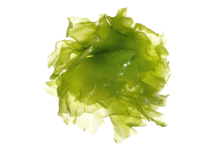An Indian research scholar, who developed technology to produce Phytase enzyme with a low cost, was awarded a Rs 50 lakh grant by the Centre. The enzyme named Phytase is imported from China at a high cost now and is used widely as an additive in poultry, cattle and fisheries feed to enhance the nutritional value.
Sidharth Arora, a PhD research scholar of Indian Institute of Technology Roorkee was awareded a grant-in-aid of upto Rs 50 Lakh for a period of 18 months for his project on the production of a thermo-tolerant and acid stable Phytase in a novel solid-state fermentation (SSF) bioreactor. Foundation for Innovation and Technology Transfer (FITT) in IIT Delhi is collaborating with him for providing mentoring support and project monitoring.
Speaking about his grant, Sidharth Arora said a revenue model/ scale-up plan for the next five years has also been prepared. “We hope to bring in a new cost-effective method of producing Phytase, which is a need for the animal feed industry today.” Currently, thermostable Phytase is imported mostly from China and is expensive when it reaches the Indian market.
Sidharth Arora, worked on a novel bioreactor technology for Phytase production in a cost-effective manner. He used a method called solid-state fermentation which included agro-waste as a substrate for the fermentation.
Through this process, the Phytase produced was acid-stable and thermo-tolerant. The bioreactor technology also has immense scope for solid waste management and pollution control.
A patent has also been filed for the design and mode of operation of the SSF bioreactor.
Inspired by his research output and funding support, Arora has formed a company called ‘Fermentech Labs’, which is presently being incubated at TIDES Business Incubator, IIT Roorkee.
“Another advantage of this technology (SSF) is that it will help in mitigating air and soil pollution due to burning of agro-waste, especially in regions like Punjab and Haryana. We will collect the agro-waste and use it as a substrate for the production of industrial enzymes like Phytase. This will provide a mode of disposal of agro-waste and a source of revenue to farmers and they will not burn down the crop stubs, which otherwise degrades air quality and soil fertility” Arora said
Source: birac











